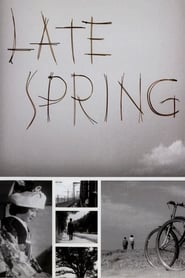What would be the best path for [Noriko] to follow? Far from a Manichaean take on the oppressive power of lingering social norms, Late Spring is a hushed battlefield where no one is right or wrong. We watch the infliction roll out inexorably, wishing there were a cheesy, American-style resolution somewhere on the horizon in which all of the well-meaning characters could be happy.
— Michael Atkinson (Criterion)
Ozu made films about parenthood, old age, the white-collar middle-class, and marriage, despite having never experienced any of those things first hand; he never married or had kids, worked almost his entire adult life for the Shochiku film studio, and died on his 60th birthday. There’s a lot to suggest that he was gay, and it’s true that his portraits of single women who feel pressured into marriage—including Late Spring’s Noriko—often suggest queer themes, relayed in gender-swapped code. (Additionally, the close relationship between Noriko and Shukichi echoes the one Ozu had with his mother, with whom he lived.)
— Ignatiy Vishnevetsky (AV Club)
Synopsis: Noriko is perfectly happy living at home with her widowed father, Shukichi, and has no plans to marry -- that is, until her aunt Masa convinces Shukichi that unless he marries off his 27-year-old daughter soon, she will likely remain alone for the rest of her life. When Noriko resists Masa's matchmaking, Shukichi is forced to deceive his daughter and sacrifice his own happiness to do what he believes is right.

